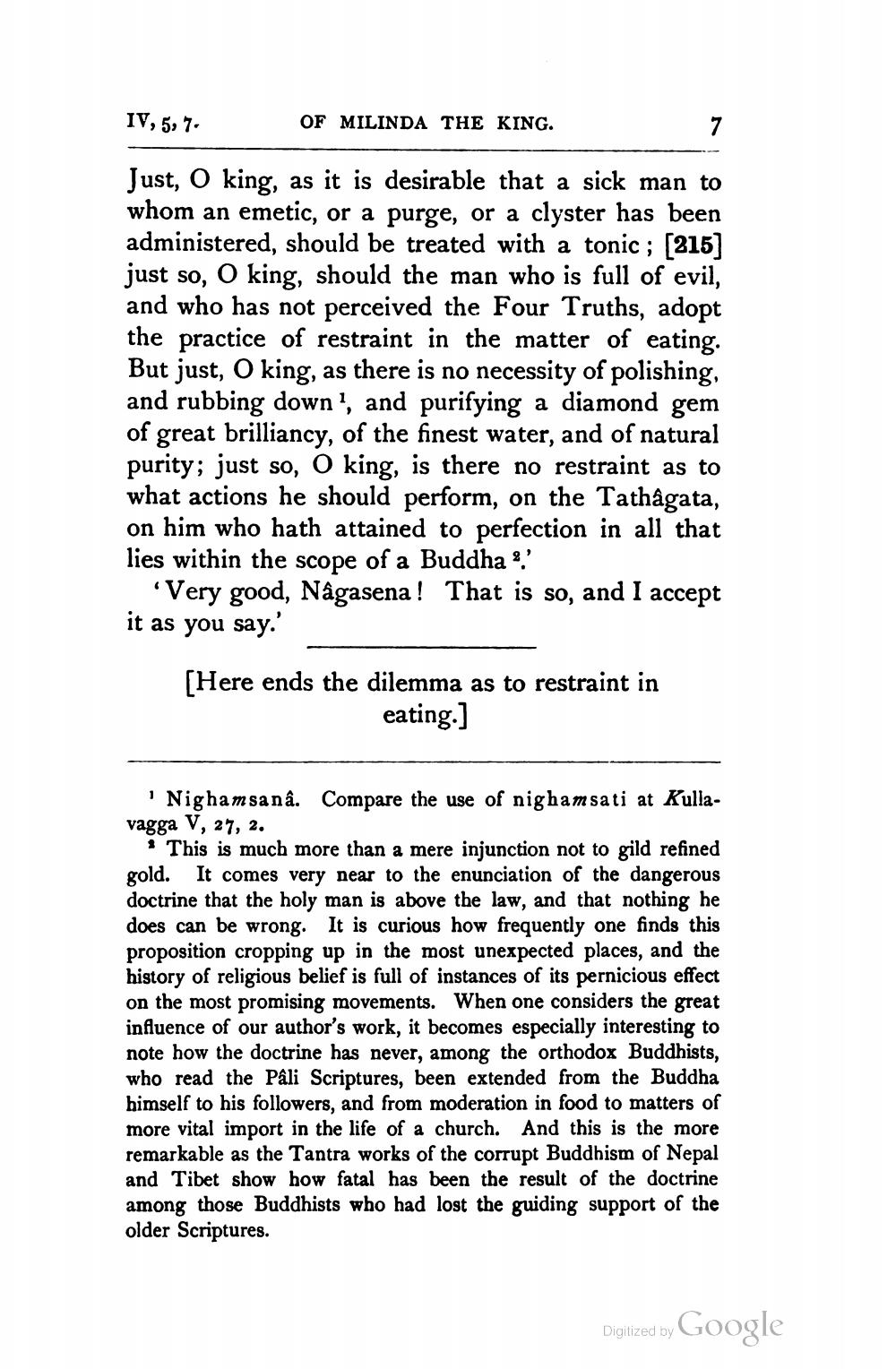________________
IV, 5, 7,
OF MILINDA THE KING.
Just, О king, as it is desirable that a sick man to whom an emetic, or a purge, or a clyster has been administered, should be treated with a tonic ; [215] just so, O king, should the man who is full of evil, and who has not perceived the Four Truths, adopt the practice of restraint in the matter of eating. But just, О king, as there is no necessity of polishing, and rubbing down, and purifying a diamond gem of great brilliancy, of the finest water, and of natural purity; just so, O king, is there no restraint as to what actions he should perform, on the Tathagata, on him who hath attained to perfection in all that lies within the scope of a Buddha ?
'Very good, Nagasena! That is so, and I accept it as you say.'
[Here ends the dilemma as to restraint in
eating.)
Nighamsa nâ. Compare the use of nighamsati at Kullavagga V, 27, 2.
? This is much more than a mere injunction not to gild refined gold. It comes very near to the enunciation of the dangerous doctrine that the holy man is above the law, and that nothing he does can be wrong. It is curious how frequently one finds this proposition cropping up in the most unexpected places, and the history of religious belief is full of instances of its pernicious effect on the most promising movements. When one considers the great influence of our author's work, it becomes especially interesting to note how the doctrine has never, among the orthodox Buddhists, who read the Pâli Scriptures, been extended from the Buddha himself to his followers, and from moderation in food to matters of more vital import in the life of a church. And this is the more remarkable as the Tantra works of the corrupt Buddhism of Nepal and Tibet show how fatal has been the result of the doctrine among those Buddhists who had lost the guiding support of the older Scriptures.
Digitized by Google




